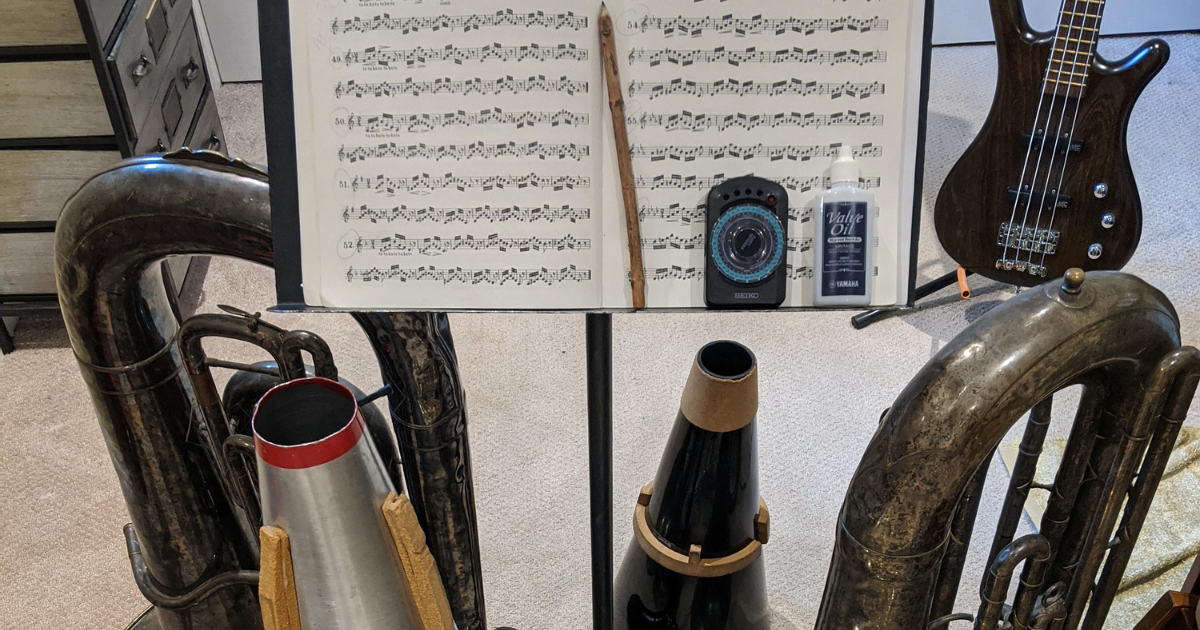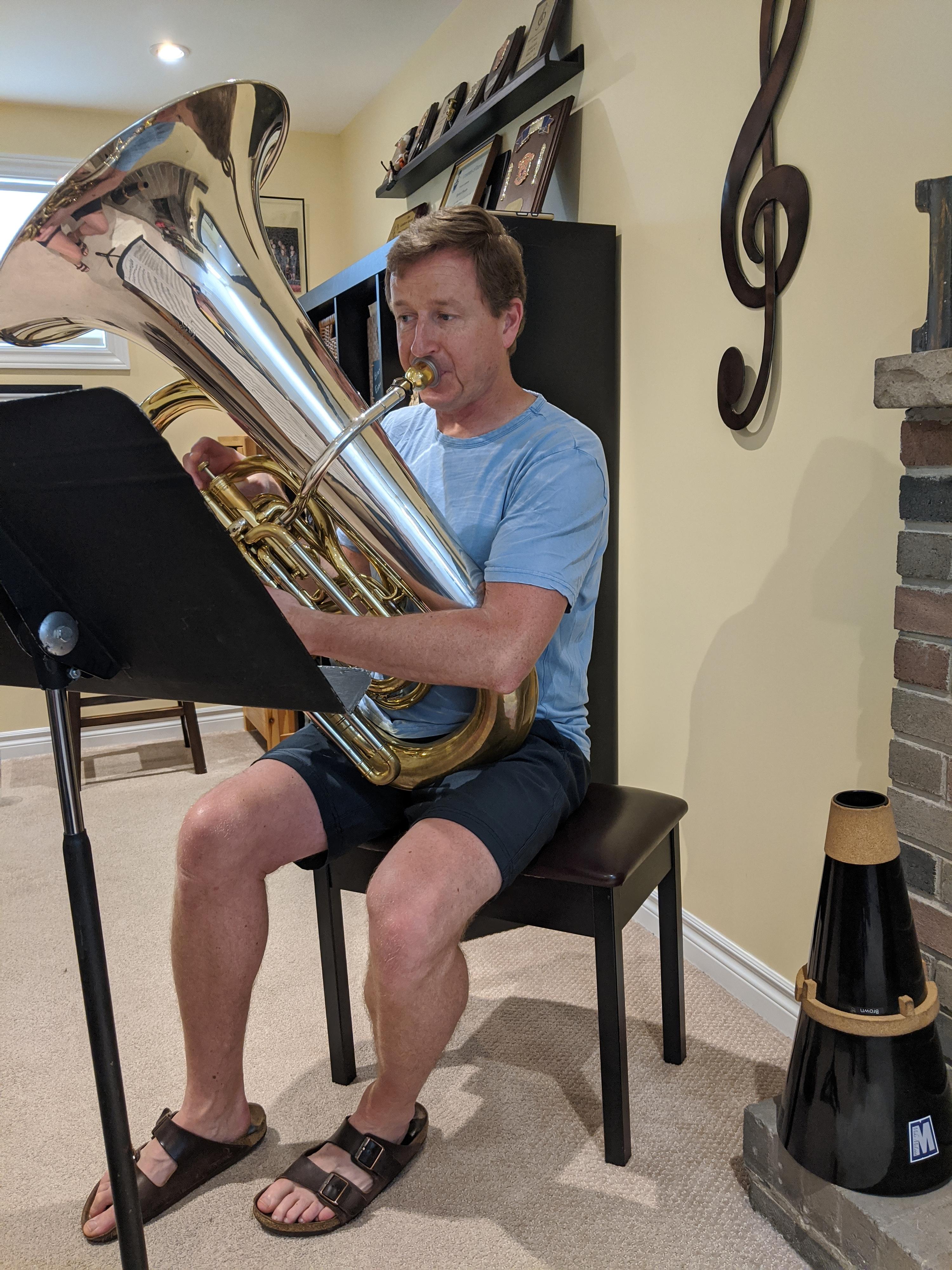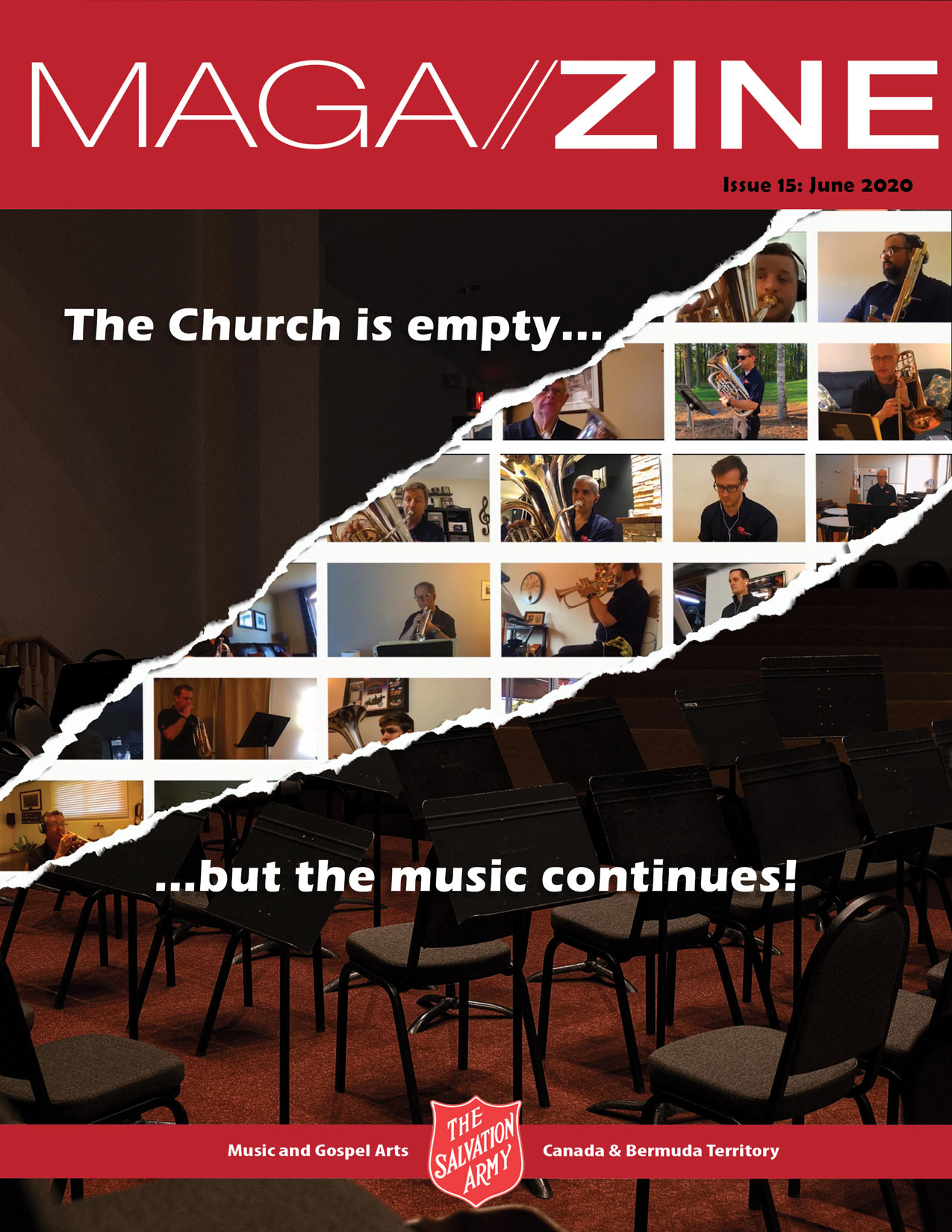Archives
Recent Posts
Categories
-
Jun1Mon
Pandemic, Practice and Praise
Finding a practice routine during a time of isolation. June 1, 2020 Rob Brown
During these times of isolation, social distancing and COVID-19 constraints, we as Salvationist/Christian musicians find ourselves without church services, concerts or rehearsals. This can lead to a definite motivational void when it comes to practicing our instruments.
What do we do? Do we stop practicing? Wait until restrictions ease? Dream of better days?
We should take this negative situation and turn it into a positive opportunity. Romans 8:28 says, “And we know that God causes all things to work together for good to those who love God, to those who are called according to His purpose.” Let’s use this time to improve our craft and focus our hearts and minds on Jesus so that when the end of this pandemic comes, we can minister through our unique musical medium to a world that needs to hear the gospel message. I am going to give you a boatload of suggestions to spice up your home/individual practice. If a couple of ideas hit and stick, then I have accomplished my mission. The first suggestion is to have a goal and know what you are going to focus on during your practice time. Change your goal for each practice session and don’t always focus on the same thing. Work on parts of your playing that need improvement. Don’t always practice your strengths. It may make you feel good to play to your strengths, but it will not make you a better player. The following are some concepts you may want to focus on during different practice sessions.
The first suggestion is to have a goal and know what you are going to focus on during your practice time. Change your goal for each practice session and don’t always focus on the same thing. Work on parts of your playing that need improvement. Don’t always practice your strengths. It may make you feel good to play to your strengths, but it will not make you a better player. The following are some concepts you may want to focus on during different practice sessions.
Long tones are super boring but super effective. They are the super vegetable of practicing. They improve sound, range, tuning, endurance, and more! Watch TV while you do this to stave off the boredom.
When practicing your articulation, start the notes with a “hoo” and when it’s clean, add the tongue back in. What about your double tongue and triple tongue? Practice those techniques as well. The Arban’s book has a myriad of exercises and it can be found online for free! Why not try a practice session without using the tongue and only using breath articulation? Think this is crazy? Try it for yourself. This exercise forces you to use your air properly, taking the focus off the tongue and onto the airstream.
Practice your loud and soft playing. They both need attention. I heard one trainer say, “I could teach a chimpanzee to play loud.” This may or may not be true, but the point still stands. It is much easier to play loudly than softly. Do you practice your soft playing? It is hard! If you can play softly then you really have control of your air. Practice it and you will get better.
Work on your lip slurs with flexibility exercises. Once again, these can be a great workout for your breath control. Work on technical studies, lyrical studies, or find a new method book. Ask people you know for suggestions.
Use a cornet tune book as part of your warm-up routine. Play the tunes in as many octaves as you can. Low brass players - go for three octaves or even four! Why not have the words to the tune beside you as you play. Make it part of your devotions. Let’s break that perception that bandsmen don’t know the words to the songs. Do a quick search on the tune and the lyricist. Why did they write the words and under what circumstances? What was God revealing, teaching, or inspiring them to do? Allow God to speak to you through the words.
What about practicing in shorter time slots over the course of the day? Some of us are stuck at home so this is doable. Set yourself a daily timetable. At 10AM, do 15 minutes on lip slurs. At noon, do 15 minutes on hymn tunes which can also be tied in with your devotions. At 2PM, tackle some technical exercises for 15 minutes, then long tones etc… You get the idea. At the end of the day, you could have put in some serious time practicing on your horn!
Record yourself. People are doing some amazing things during these COVID-19 days. Jump on board. You don’t have to post it, but you should record yourself. Get some friends involved and set up your own virtual duet, trio, ensemble, band, etc… There are a lot of great apps out there you could explore. Turn one of these friends into an accountability partner and do your hymn tune devotions with them.
Lastly, play through some solos. Work on one or two at a time. Break down a smaller portion of the solo and really woodshed it. Make listening to great players part of your routine. Copy them; it is the highest form of praise. Mostly, copy Jesus, the author and perfecter of our faith (Hebrews 12:2).Whatever you do, work at it with all your heart, as working for the Lord, not for human masters…it is the Lord Christ you are serving (Galatians 3:23-24).
 This article was originally published in the June 2020 MAGAzine. Read the entire issue here:
This article was originally published in the June 2020 MAGAzine. Read the entire issue here:






Leave a Comment